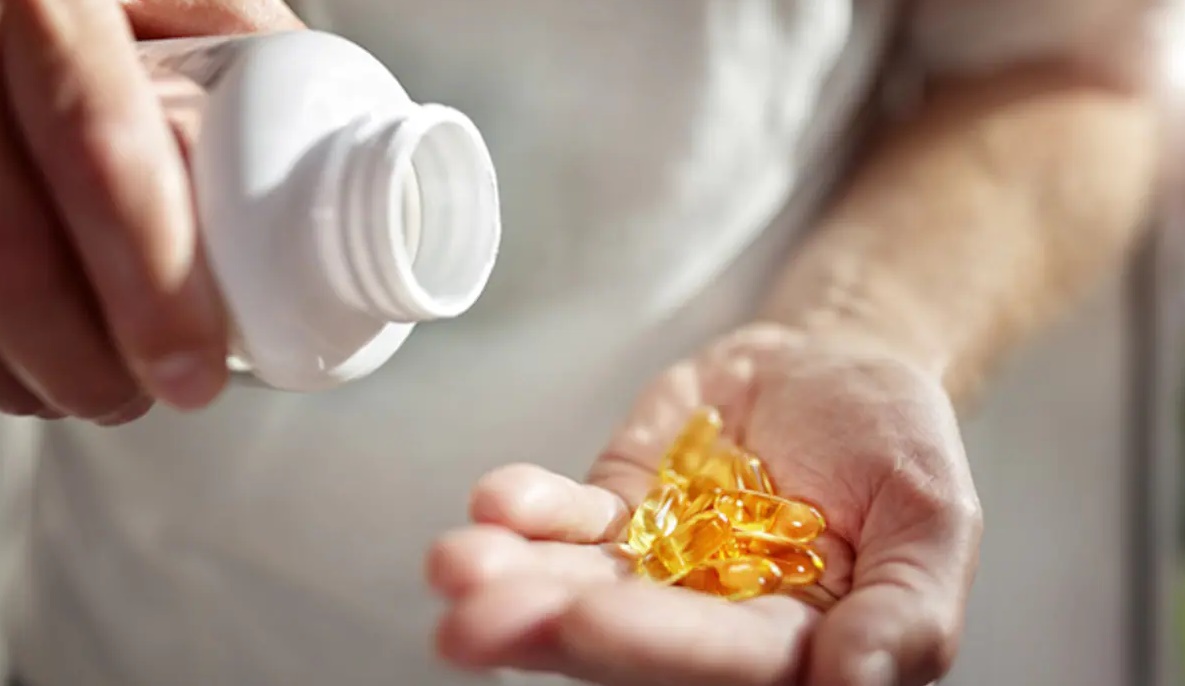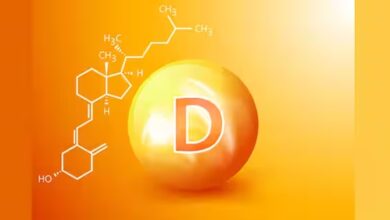Recognizing an overdose of vitamin D – these are the signs your body shows
In the event of an overdose, vitamin D can become a health problem. Your body then shows certain signs.

Helpful for strengthening bones, strong muscles and an intact immune system – vitamin D has a good reputation. But the health-promoting effect can be reversed if you permanently consume too much vitamin D.
You can find out here when such a vitamin D overdose can occur and what symptoms those affected can expect.
Vitamin D: What functions it fulfills in the body
Vitamin D fulfills a variety of functions for the human body. The best known of these: It supports bone metabolism, i.e. the formation and breakdown of bone substance. The hormone particularly promotes the absorption of various minerals and their subsequent incorporation into the bones.
In addition, vitamin D is involved in the following tasks:
Supporting various metabolic processes
Formation of proteins
Control of multiple genes
Vitamin D is vital for the human body for several reasons, primarily for the bones. Both a deficiency and an overdose can have serious consequences.
Overdose of vitamin D: dietary supplements as a cause
Vitamin D is considered a sunshine vitamin – and not without reason: everyone produces it when they are exposed to sunlight. But this, the natural, route cannot lead to an overdose. The body has a kind of protective mechanism that kicks in as soon as there is enough vitamin D in the body. And such a consequence can also be ruled out through diet – for example, frequent eating of fatty sea fish.
The cause of too much vitamin D lies solely in the dietary supplements through which the vitamin can also be absorbed. The Federal Institute for Risk Assessment (BfR) even warns of the health risks that can be associated with taking vitamin D preparations on your own. “Higher dosages should only be given under medical supervision and taking the individual vitamin D status into account,” says a current statement from the institute. How serious the consequences of a vitamin D overdose can be has been shown again and again. The most recent example is a man from Great Britain who had to be hospitalized with kidney damage, nausea and vomiting.
Anyone who wants to take vitamin D on their own should only use preparations with a daily dose of up to 20 micrograms (800 international units). “With this amount, health problems are not to be expected.” According to the BfR, regular daily intake of vitamin D via high-dose preparations – for reasons other than medical reasons – increases the risk of health damage such as the formation of kidney stones or kidney calcification. There are also cases of acute kidney failure as a result of uncontrolled self-taking of vitamin D preparations. In addition, many vitamin D preparations are ineffective and even harmful.
Symptoms of vitamin D overdose
In order to process and store the vitamin D it absorbs, the body needs calcium. If the vitamin D level is increased, more calcium is absorbed from food and released from the bones. A large part of the symptoms of a vitamin D overdose can be traced back to this increased calcium blood level (hyper-calcemia). These are the symptoms of a vitamin D overdose:
Nausea and vomiting
Loss of appetite
extreme thirst (polydipsia)
increased urination (polyuria)
Feeling of weakness
Headache
nervousness
Kidney stones and kidney damage up to kidney failure
Stomach cramps
fatigue
With regard to the symptoms, a distinction is made between an acute and a chronic vitamin D overdose. Serious consequences such as kidney failure or kidney damage only occur after a longer period of increased intake. An acute overdose is when you take too much vitamin D once. To detect an overdose, the blood level is checked. If you are unsure whether you have consumed too much vitamin D, you should contact your family doctor.
In the wake of the corona pandemic, recommendations for taking vitamin D supplements repeatedly circulated on the Internet. It could protect against infection or at least against a severe course, it was said. However, the BfR warns against taking vitamin D preventatively for this purpose. When it comes to Covid-19, the data situation is currently still uncertain. In particular, it has not yet been shown that people who are well supplied with vitamin D benefit from additional vitamin D administration. “A general recommendation to take vitamin D preparations to prevent a Sars-CoV-2 infection or a severe course of Covid-19 disease cannot currently be justified,” says the institute.
Vitamin D deficiency: For whom it makes sense to take it
Although vitamin D is not a “real” vitamin because it can only be absorbed to a limited extent through food, it still plays an important role in the body. For example, a vitamin D deficiency can cause the bones to soften and decalcify. Muscle weakness, bone pain and a reduction in physical strength can result. People who produce too little vitamin D can also develop the disease osteoporosis. This causes bone mass to break down – the bones become brittle. Older people are particularly affected by this disease.
For this reason, the BfR also recommends a general vitamin D intake of up to 20 micrograms per day for nursing home residents.
“Vitamin D is formed in the skin under the influence of sunlight. However, many older people rarely exercise outdoors.” In addition, vitamin D production decreases significantly with age. In the worst case scenario, a severe vitamin D deficiency can be fatal.
Vitamin C, zinc and co.: Do they really strengthen the immune system?



Bir Yorum